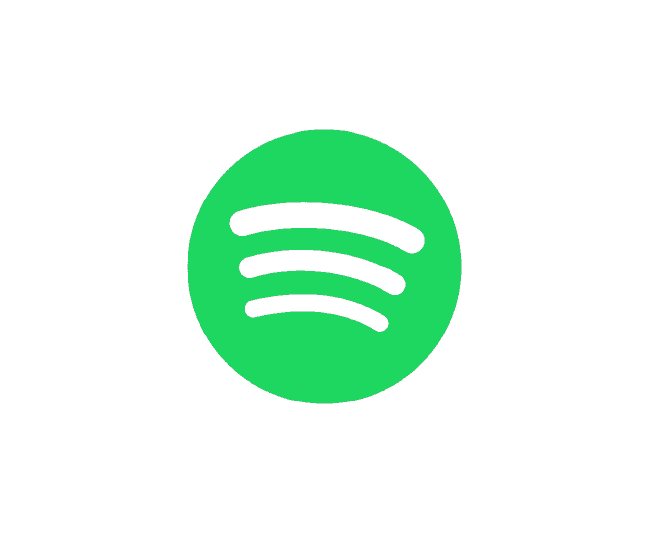Buy Spotify Podcast Streams
Podcasts are very popular on Spotify these days. Our services are what you need to make your podcast known and popular. We help you reach a wider audience in no time. Yes, you can easily promote your podcasts now and gain more reach with our Spotify streams.
Earning Money with Spotify Podcasts
Podcasters can easily earn money through Spotify. Spotify offers developers several ways to monetize their work. You can simply put your podcast on the platform or use old-fashioned methods like merchandising, streaming, physical copies, and more. Spotify is a subscription-based platform that allows creative individuals to earn money. To listen to podcasts on Spotify, users need to pay for a subscription. So, it’s a good revenue source for musicians and podcasters. More Spotify podcast streams mean more revenue through royalties. You’re in luck! There are many great services offered for sale, such as.
Boost the popularity of your Spotify podcasts
Podcasts have been around for a while and are increasingly popular among the masses. An entire industry has been created just for this concept, where people follow popular accounts or channels that release their podcasts every day or week for an audience from almost anywhere in the world.
The struggle for popularity can be tough. But if you’re passionate about your podcast and put in enough effort, it will pay off! One way to enhance this process is to market the show through social media. One of the best ways to market podcasts and boost your streams is by purchasing our Spotify streams.
We can increase your popularity on Spotify in just a few minutes. More streams mean more people listening to your podcast. This makes it easier for others to discover your podcasts on Spotify and has greater search relevance.
Start a podcast on Spotify
Step 1: Before uploading the podcast
Step 2: Choose a hosting company for your podcast
Now that your podcast can be uploaded, it’s time to decide which hosting company to use. Common podcast hosts include Libsyn, Buzzsprout, Blubrry, and Podbean.
To find the right fit for you, you’ll need to research more about them and their offerings. Not all of them are free. Perhaps you should reconsider your decision if you have big plans or if you need the best possible experience with your product.
Most apps like Spotify do not store podcast files, and instead, you need to use other hosts.
Step 3: Upload the podcast to the hosting company.
You can now add podcasts to Spotify through the service of your choice. Here’s how to do it based on your selected hosting:
- How to send podcast to Spotify using Libsyn
- Sign in to your Libsyn account.
Click on the “Goals” tab in the dashboard, then select “Add New”. - Then click “Edit” next to Spotify.
A new - The goal-setting form should appear on your screen. You can choose from several options that are relevant to your podcast.
- Enter the subtitle, a summary, and the author’s name (the name of your show).
- Set your podcast language and choose whether the podcast contains offensive content.
- Also, enter your name and email address.
Agree to the terms and conditions. - Click on ‘Save’.
Navigate with Blubrry to Spotify
- Sign in to your Blubrry account.
There are requirements you must meet when submitting a podcast to Spotify. - Make sure your podcast meets these specifications before attempting to submit it!
- Enter the RSS feed and the home country.
Fill in the category to appropriately describe your show. - Agree to the terms and conditions.
- Enter your name and submit the podcast.
Upload with Buzzsprout
- Sign in to your Buzzsprout account
- Click on “iTunes and Directories”
- Select “Submit Your Podcast to Spotify”.
- The title of your show, the email address associated with your Buzzsprout account, and
- Your RSS feed needs to be entered.
Is your show free of copyrighted material? Then confirm. - Press ‘Submit’
Upload with PodBean
- Sign in to your Podbean account.
Go to - Settings and click on “Social Share”
- Search and click on the “Connect with Spotify” button.
- Agree to the terms and conditions
- Select the home country of your show
- Click on ‘Apply’
If you’ve opted for a different hosting service, you can simply follow the instructions on the website of that podcast host.
Step 4: Wait for Spotify approval
Spotify won’t contact you regarding the status of your podcast submission, but you’ll still hear from your hosting service if it’s approved. You may also wait 2 to 5 days for your show to be approved or search for your podcast on Spotify until it appears there. You want to have control over the design of how it looks on Spotify, hence being ahead of the general public.
Step 5: Share your podcast link
To ensure your podcast is heard on Spotify, create a user profile page and promote it by sharing the link. Share your podcast with your friends, family, and/or followers on social media platforms. Make this a regular habit when releasing podcasts to leverage the benefits of a much broader audience.
How can one earn money with Spotify podcasts?
Every time someone streams or listens to a podcast or music on Spotify, the podcast owner receives a small amount. This amount varies among artists, depending on their popularity on Spotify.
Most podcasters receive an average of $0.00357. So, if you are a newcomer, you have the potential to receive this amount. This means that you earn $0.35 for every 100 streams.
1,000 streams would earn between $3 and $0.57. It takes approximately 3.5 million streams per year to earn $12,000, which would equate to a nice minimum wage of $1,000 per month.
1. Add podcasts to a playlist
If your Spotify podcasts are popular, you’re likely to receive thousands of podcast streams. Of course, there’s a lot of competition, so it’s best to continue submitting your podcast feed to potential playlists.
Using your own playlist to add content is an easy and effective way to gain popularity. The tracks must be related, so it’s important to include only fitting songs or podcasts! You can now upload your playlists to other websites and share them online. There’s also a subreddit you can find and share with the rest of the world!
2. Collaborate with artists
This is another way to leverage yourself by streaming your own content or being interviewed by other artists, and it also creates opportunities for fans of each artist to talk about the other. Nowadays, you’ll see more and more collaborations, so why not give it a try?
If you believe your podcast is really good, reach out to both small and big artists and ask for collaboration. You need to be patient as you may receive hundreds of such requests.
3. Affiliate marketing
The company you partner with (the company providing the affiliate) will provide you with an affiliate link that you can provide to the listeners of your podcast. It’s a good idea to have a simple podcast affiliate link ready for use that’s easy for you to read and easy for your listeners to remember. For example, use a standard format, such as your website with an additionwww.jouwwebsite.nl/affiliatenaam.
When people visit the page with this URL, they take the action, and companies then reward you. You receive a certain amount, depending on the number of visitors you get who then purchase something from the affiliate website.
4. Selling products
One way to sell merchandise is to do so using a print-on-demand model. This means that you print products at the time of purchase and ship them to your customers. With low overhead costs and passive income, you can already do this. Shipping and inventory are handled by a third party, so you don’t have to worry about it.
5. Offer paid memberships through Patreon
Patreon is a highly popular platform that allows fans to make regular monthly payments to their favourite podcasters. As a creator, you’ve chosen to offer your community members several subscription options.
Subscription-based podcast business models work well for independent podcasts looking to focus on growing their audience. This helps reduce the risk of profit-oriented business.
4. Host live podcasts and ask for tips
Hosting live events can be a great way for podcasters to earn extra money, but it’s more challenging for new podcasters to find gigs. Live venues can be used for performances, but they often won’t pay you unless you have a large number of listeners and people who want to see your show.
Live streaming has gained momentum in recent years, and it’s now common to see podcasts using these tools. This can enhance your production quality and profitability. Plus, you don’t need to arrange much in advance or make travel plans as you would for an in-person live show.
Consider carefully where you want to host your podcast. You might not want to simply put it on Facebook Live, considering how much traffic that network receives. First, see which social media platforms have live streaming features to choose one of the most popular options.
- Patreon. Patreon utilises a chat app called Crowdcast to host live streaming events, allowing you to create both free and paid events. Patreon is a platform where creators can connect with their audience and earn a living doing what they love. On their website, you’ll find a range of different tools, including live video hosting, live chatrooms, and more. Patreon uses Crowdcast to host these events.
- Twitch. Twitch has a new feature called Squad Stream, which allows up to 4 streamers to earn money in the same window. Many people primarily use Twitch for their gaming content, so it’s a great and cost-effective platform to promote your podcast.
- Facebook Live. Facebook has the largest audience of all social media platforms and continues to grow. There isn’t yet a paid streaming feature on Facebook Live, but you can monetise your stream by enabling in-stream ads.
- YouTube Live. With YouTube Live, you can monetise through ads and Super Chat from paying fans. However, to access these features, you need to be eligible for the YouTube Partner Program.
How much money do you need to start a podcast?
A podcast microphone doesn’t have to cost a lot of money. If you don’t want to mix studio-quality audio, you can use free software like Audacity or GarageBand to create high-quality audio. However, if you’re looking for a more advanced sound mixing suite like Adobe Audition, the price starts at $20.99/month.
Podcasting software like FL Studio, Ableton Live, and Logic Pro can easily produce great music and save you time, although they are typically somewhat expensive if you’re only using them for podcasts.



Outstanding!
Recommended! 🌟
Thrilled! 😁
Outstanding!
Fast! ⚡